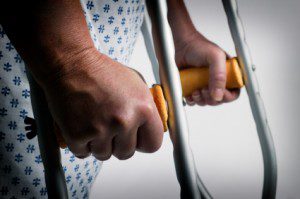
Tort Law Basics
“torts” is the area of the law that addresses injuries to your person or your property. Premises liability falls under the larger umbrella of tort law, focusing on injuries to your person while you are on the property of another. Most types of torts, including premises liability, use a negligence standard when determining if the defendant is liable for damages. Negligence is a legal term that is based on the breach of a duty of care the defendant had toward the victim. For example, in the case of premises liability, a property owner or occupier has a legal duty to keep the premises free from hazards that are known to the owner/occupier or that could reasonably have been uncovered.
Examples of Premises Liability Accidents
A visitor on the property of another can be harmed in an infinite number of ways; however, some common examples of accidents that fall under the purview of premises liability include:
- A diner who becomes sick from food poisoning
- A shopper at a grocery store who slips and falls because of liquid spilled in an aisle
- A guest at a hotel who is robbed in the parking garage where there was inadequate security.
- A guest at a party who falls down the steps because of inadequate lighting
The Victim’s Status
The extent of the duty owed to a visitor on the property depends on the visitor’s reason for being on the property in the first place. The law classifies visitors to a property into three categories:
- Invitee – an invitee is someone who is lawfully on the property, by invite of the owner/occupier, and from whom the owner/occupier stands to gain financially. Examples of an invitee include a diner at a restaurant, a guest at a hotel, a shopper at a grocery store, or a client in an office. In all of these examples the property owner/occupier expects to profit from the visitor’s presence in the property. The law imposes the highest duty of care on the owner/occupier when the visitor is an invitee.
- Licensee – a licensee is also lawfully on the property by invitation of the owner/occupier but without the expectation of financial gain. Examples of a licensee include a plumber who is there to fix the sink, a social guest at a party, or a delivery person dropping off merchandise. The law imposes a similar, but less strict, duty of care when the visitor is a licensee.
- Trespasser – a trespasser is a visitor who is not lawfully on the property. An owner/occupier is only required to refrain from intentionally harming a trespasser.
Compensation in a Premises Liability Case
If you are the victim of a premises liability accident, the owner and/or occupier could be required to compensate you for both your economic and non-economic damages. Economic damages are your out of pocket expenses, such as medical bills and lost wages. Non-economic damages are what most people refer to as “pain and suffering.”
Contact Us
If you have additional questions or concerns about premises liability in the State of Tennessee, or if you believe you are the victim of a premises liability accident, it is in your best interest to consult with an experienced Tennessee personal injury lawyer at Bennett, Michael & Hornsby as soon as possible. Contact the team today by calling 615-898-1560 to schedule your appointment.
- When Are Miranda Warnings Required? - April 16, 2024
- 5 Benefits of Mediation in a Tennessee Divorce - April 9, 2024
- Understanding White-Collar Crimes in Tennessee - April 5, 2024







